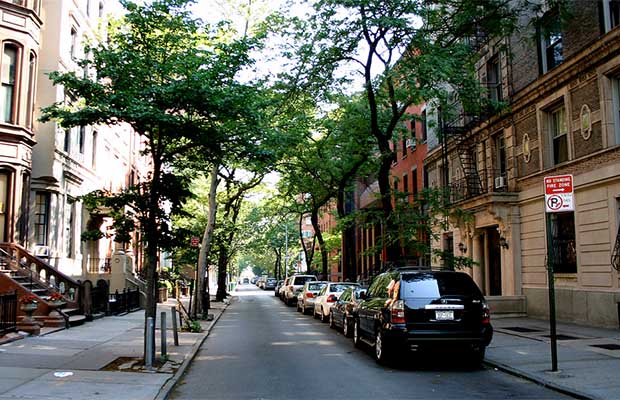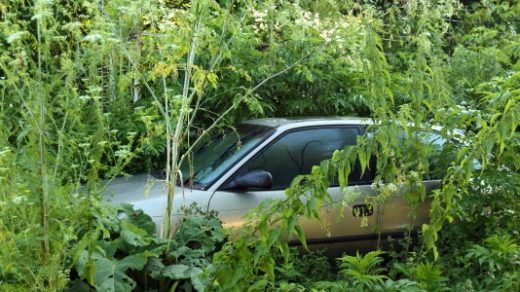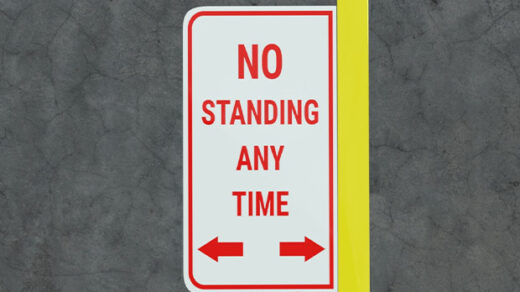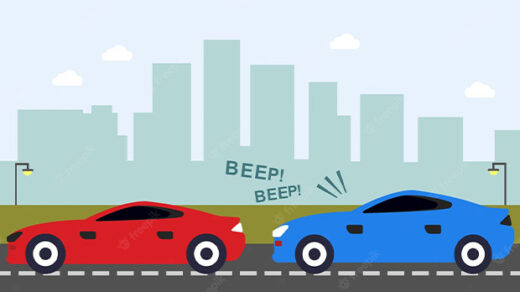With cities expanding rapidly and available space shrinking, parking is a major issue in every aspect of society. Apartment buildings, homes, and other structures line the residential street in the neighborhood., and the parking rules for the area are different from that of public spaces.
How long can a car be parked on the street? An officer or staff member of the police force has the authority to issue your car a parking violation notice if it isn’t moved within 72 hours.
However, in some states, you are permitted to park for however long you please without worrying about having your car towed or receiving a ticket as long as it is legally parked, registered, and roadworthy.
Learn more about street parking regulations by reading on.
Table of Contents
How Long Can A Car Be Parked On The Street?
There are different regulations for parking in residential and public areas, and parking-related problems are not just limited to public spaces. Parking options include both on-street and off-street parking. Off-street parking is obviously the type of parking where all the vehicles are parked in some other outlet than the street, essentially underground parking lots, as the name implies. And since parking on public streets is the norm everywhere, this is where you should park your car.
The main problem with on-street parking in residential areas is that there is little to no space for parking cars, and when people park their cars on the street, it disturbs the peace and harmony of the pedestrians by blocking their way and causing problems for them. It becomes difficult for them to go about their daily lives.
In addition, as the number of cars on the street increases, it becomes simpler for opportunistic strangers to park their cars in the middle of the crowd without being seen, which worsens the issue by obstructing the roads. Further, some people might park their cars improperly, making it difficult for other drivers to exit.
Since only residents are allowed to park on the street, there is a rule that states that any unclaimed vehicles will be towed after 72 hours if they are discovered there.

Pros Of Parking Cars On The Street
Parking on a residential street has these benefits:
1. Reduction In The Rate Of Car Abandonment
Because drivers and car owners already know that it’s a residential area and that their cars will be towed if they leave them there for longer than the allotted time, it reduces the rate at which cars are parked and left there for an extended period of time in such areas.
2. Increased Air Quality
When cars are parked in residential areas, fewer people drive through the neighborhood looking for a place to leave their vehicles, which reduces the amount of exhaust gas released into the air and improves air quality.
3. Reduced Risk Of Pedestrians Getting Hit By Cars
People are less likely to be struck by cars when there are cars parked in a residential area because the parked cars act as a sort of barrier against collisions.
4. Reduced Risk Of Towing
There is a decrease in the number of cars being towed in residential areas where residents have parking permits because people are aware of the consequences of leaving their cars parked longer than allowed, so they don’t do it.
5. Accountability And Security Of Residents To One Another
Because they will eventually recognize the cars that are being parked and be able to easily spot any strange vehicle in the area, it makes the neighbors responsible and security-conscious toward one another.
Cons Of Parking Cars On The Street
Parking your vehicle in a neighborhood has the following drawbacks:
1. Restriction Of Pedestrian Movement
When there is a rush and too many people are attempting to pass through, some people will occasionally partially block the sidewalks by parking their cars on the pavement. This prevents pedestrians from moving freely.
2. Detecting Strange Vehicles Is Hard.
Because it’s common for people to park their cars in the street, it won’t be simple to spot anything suspicious when cars are parked on residential streets. Anyone can leave a car parked on the street for days without being stopped or interrogated.
3. Increased Rate Of Car Theft
It is very convenient for anyone to get into any car and steal one without anyone even noticing when cars are allowed to park in residential areas because there are too many cars and too many faces to try to recognize.
The car thief could easily escape with the vehicle if that were to happen. You’ll hear people asking around about who broke into their car because of this.
4. Obstruction Of A Driveway Or Other Vehicles
For a variety of reasons, some drivers fail to properly park their cars before getting out; perhaps they hurriedly needed to do something.
A car can be reported if it is improperly parked or obstructing the driveway of another local resident or the car of another local resident. This could result in receiving a ticket or the car being towed away.
5. Increased Rate Of Car Damage
Unintentionally hitting another person’s car while trying to park their own can result in damage to that car. They might end up trying to fix the damaged vehicle, which could result in unexpected costs, violent altercations, etc.
Why Is It Only Allowed To Park Cars On A Residential Street For 72 Hours?
Since it is more convenient for them to do so, people naturally prefer to park their cars closer to their homes. Ordinarily, residential areas offer parking permits to residents who choose to accept them; if not, they provide parking spaces for the residents.
The fact that this location is in the middle of the city makes it difficult to regulate because there aren’t many spaces available.
The best way to handle this issue was to use the “off-street” parking structure, which featured apartment buildings creating underground parking spaces or separate floors in the building for parking itself.
However, it became a problem for the older, more rigidly constructed residential areas because they lack the room to restructure. Since they were built at a time when this was not an issue, they do not need to be renovated in order to comply with the off-street parking regulations. The only way to address this effectively would be to change parking regulations in various locales. This could solve the parking space issue without requiring any changes to the pre-built residential structures. Therefore, the unclaimed vehicles in the area are only permitted to be parked for 72 hours; after that time, if no one makes a claim, the public bodies are free to have the vehicles removed or towed. This could prevent the road from becoming congested with vehicles and cause the cars of the locals to become locked or shuffled among them. This is a very suitable solution to keep the spaces clear of pointless cars and maintain the law.
What If I Leave My Car Parked On A Residential Street For So Long?
After being checked and it being determined that it does not belong to anyone residing in the area, a car that has been left unclaimed for more than 72 hours, or a week in some states, will be towed away.
Cars that do not belong to residents of a particular area cannot be parked for long because usually, residents of an area where on-street parking is allowed have permits to park on the street and so any car that doesn’t have a permit is believed to be owned by someone who doesn’t live in that area, that’s why they’re towed away
Conclusion
The new residential areas are choosing off-street parking by creating personalized underground parking areas for the residents in order to address the issue of parking spaces. f
No unknown vehicle may be parked in an old residential area for more than 72 hours if parking lots weren’t included in the plan.
Also Read:



